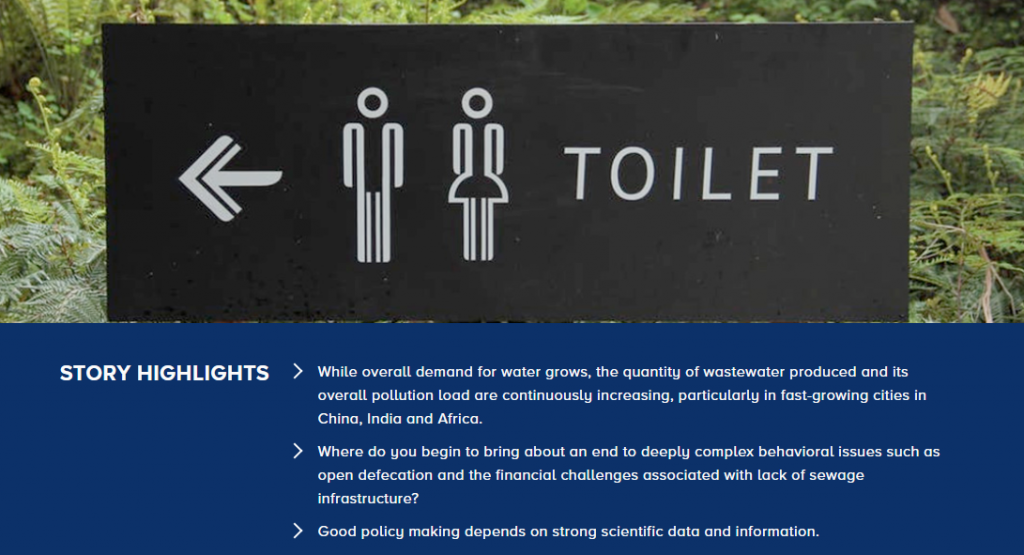On a daily basis, both human needs and activities depend on water. The lack and limitation of this resource for proper sanitation services – toilets and sewage infrastructure – or the growing degradation of waters due to increasing wastewater discharge constitutes a serious problem. Developing and developed countries are equally affected.
Slum dwellers, for instance, frequently have to rely on unsewered communal public toilets, use open space or dispose faeces in polythene bags (i.e. flying toilet). Communal toilets in slums are not widely used due to poor maintenance and upkeep, lack of water and often a cost to the user that makes it prohibitive.
A study in the slums of Delhi in India found that the average low-income family of five could spend 37% of its income on communal toilet facilities. Finding a suitable place to go to the toilet is especially problematic for women, causing risks related to personal security, embarrassment and hygiene.
While overall demand for water grows, the quantity of wastewater produced and its overall pollution load are continuously increasing, particularly in fast-growing cities in China, India and Africa.
Due to potential risks to human health, waste water reuse in agriculture is particularly problematic. Farmers, field workers, and nearby communities are widely recognized to be the most vulnerable groups through their direct contact with wastewater. There is also a knock-on impact on consumers through the consumption of wastewater-grown crops. Limited awareness of health risks associated with wastewater use, due to poverty and low levels of education, further compounds the problem.
The benefits to society of managing human waste are considerable, for public health as well as for the environment. It is estimated that every USD 1 spent on sanitation delivers a return to society of a value of USD 5.5.
Access to water and sanitation for all is the UN’s SDG 6. It is also the theme of this year’s World Water Week, which takes place in Stockholm, Sweden, in August.
But where do you begin to bring about an end to deeply complex behavioral issues such as open defecation and the financial challenges associated with lack of sewage infrastructure? The starting point must be data and information, which are key to understand the scale of the challenge. Without strong evidential data and reliable information, attempts by political leaders to tackle wrong-doing amount to a shot in the dark. Good policy making depends on strong scientific data and information.
Second, there is a real need to invest in facilitating international knowledge share and training, as well as capacity development on water governance for regulators and consumers alike. Without awareness raising of these issues and adequate resourcing, corruption in the water sector will continue to thrive fostering a deeply corrosive effect on good water management.
Third, armed with strong data and with clear water governance policies in place, governments should be better placed to go to international markets and multilateral aid agencies to raise the investment they need to begin to fund and implement a shift change in the infrastructure. Fundamentally, to a nation, the economics of improving access to water and sanitation are compelling. Improved access unleashes a financial imperative that delivers an estimated five-fold return on the investment.
Finally, involving citizens in decision making at all levels promotes engagement and ownership. This includes decisions as to what types of sanitation facilities are desirable and acceptable, and how they can be securely funded and maintained over the long term. It is especially important to reach out to marginalized groups, ethnic minorities and people living in extreme poverty, in remote rural areas or in informal urban settlements. It is also essential to engage with women, as they bear the brunt of the health consequences stemming from the unsafe management of human waste, globally.
* * *
This article was written by Ignacio Deregibus, Communications Officer, International Water Resources Association (IWRA).



